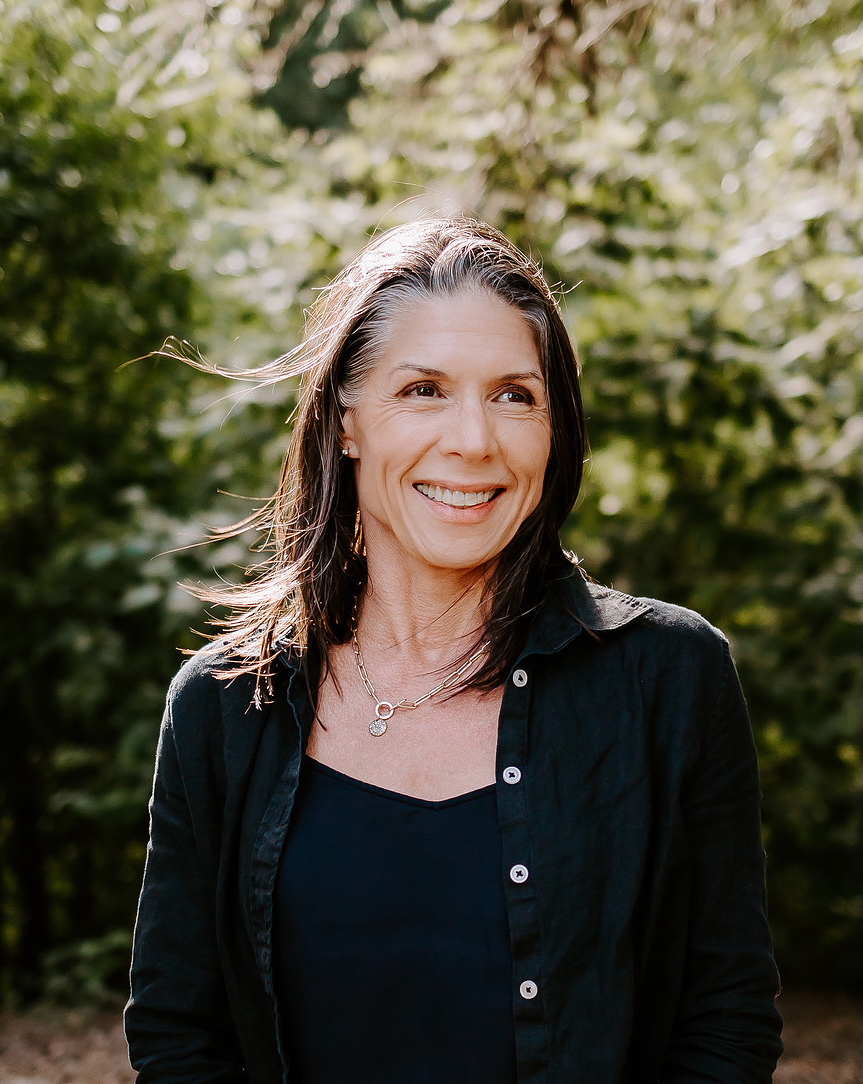CERTIFIED RELATIONAL LIFE THERAPY (RLT) COACH
The relationship you really
want is yours to create.
Relationship coaching to help you transform painful patterns into resilient, fulfilling, and joyful connection.
This isn’t what you pictured.
Even though you love each other (most of the time), you don’t love where your relationship keeps landing. Maybe you’re feeling—
Frustrated… or deeply resentful.
Taken for granted… or fully unseen.
Wishing for more…. or ready to walk away.
Perhaps it sounds more like this in your head:
"I want my partner to stop doing _______." "I’m exhausted and wonder if there is any hope for us." "My partner and I lead separate lives—I feel lonely." "No matter the argument, it seems to be my fault." "Since _____ changed (kids, work, etc.) we've struggled." "When we try to talk about _____, we blow up." "I'm considering divorce but am open to help." "I don’t feel loved or important in our relationship." “We’re becoming so different; it’s hard to connect.”

“I want my partner to stop .”
“I’m exhausted and wonder if there is any hope for us.”
“My partner and I lead separate lives—I feel lonely.”
“No matter the argument, it seems to be my fault.”
“Since changed (kids, work, etc.) we’ve struggled.”
“When we try to talk about , we blow up.”
“I’m considering divorce but am open to help.”
“I don’t feel loved or important in our relationship.”
“We’re becoming so different; it’s hard to connect.”
“I’m exhausted and wonder if there is any hope for us.”
If any of these resonate, take a breath—you’re not alone.
Disharmony is normaland repair is possible.

That’s why “relationships take work” isn’t just a saying—it’s a nonnegotiable. Struggles are inevitable when two imperfect people try to build something lasting together. Yet somehow, working on your relationship is a skill no one ever teaches us.
I can help.
I’m Stephanie, a Certified Relational Coach, and I’ll help you develop the skills you need to build a true partnership—the kind you’ve longed for but may be wondering if it is possible
What you can expect:
After decades of trial, study, and practice in search of real solutions for couples, I discovered Relational Life Therapy—a model proven to help people change, quickly and for good.
Whether you’re rebuilding after years of struggle or laying a healthy foundation from the start, we’ll apply RLT principles—together or individually—to:

Clarify your goals.
Maybe you’re not clear on what you’re working toward, or maybe it feels like your individual goals are working against each other. Whatever we uncover—less tension, more trust, stronger connection—our aim is simply to name what matters most.

Understand your obstacles.
Frustration, disconnection, and the same argument playing out in different ways aren’t random. They’re signs of something deeper. Often, what’s missing is a clear understanding of the real obstacles—and how to work through them. With that in place, lasting change becomes not just possible, but likely.

Transform your relationship.
Healthy relationships move through a cycle of harmony, disharmony, and repair. But without skills and training, couples often skip repair and return to a state of false harmony, where hurtful patterns persist. You’ll learn and practice the essential relational skills to complete the healthy cycle—drawing closer together as you grow.
I’d love to explain how this applies to your life.
I recognize that just acknowledging these things takes courage.
I’m so glad you’re here and hope we can talk soon.
Which option is best for you?

Couples Coaching
Focused, action-based coaching that helps couples break unhealthy cycles and build a relationship that endures.

Individual Coaching
Support for those who want to better understand their relational patterns and learn new ways to connect.

Relational Bootcamp

“But therapy moves
so slow. It’s daunting.”
I used to think this, too.
Relational Life Therapy is different. It is action-focused, trauma-informed, and guided by neuroscience of change to create meaningful improvements – quickly.
You may also be wondering…
What if my partner doesn’t want to come?
While working with both partners is often ideal, it's not required to see real change.
Many of my clients start on their own—and discover that by learning new skills and shifting their own responses, they’re able to influence the relationship in meaningful ways. When one person changes the dance, the dance changes. And that can be the beginning of something new.
What actually happens in a session?
We start by getting clear on what you want to be different—what success would look like for you. Then we begin to explore the patterns and dynamics getting in the way. I’ll guide the conversation with curiosity and compassion, offering insight and practical tools along the way.
You’ll leave each session with something to reflect on or try—because insight is important, but practice is what creates change.
How long does it take to see results?
Most people walk away from the very first session with new insight and a few simple tools they can begin using right away.
RLT is designed to create meaningful shifts early in the process. Over time, those small changes add up. Some clients come for just a handful of sessions and feel equipped to move forward. Others choose to stay longer and go deeper. We’ll find the pace and rhythm that’s right for you. You can read more specifics here.
Can this help if our situation feels heavy—or even hopeless?
I want you to know: you're not alone. And you're not beyond help.
Relational Life Therapy is especially well suited for these moments because we don’t avoid the hard stuff. We look directly at the challenges you’re facing and begin building the skills that create clarity, healing, and forward movement. That might mean learning how to communicate without shutting down or blowing up, reconnecting emotionally after a rupture, or simply feeling seen and understood by your partner again.
Whether you’re in crisis or just quietly struggling, this work can help you move from disconnection to something stronger, more honest, and more fulfilling—if both of you are willing to do the work.
What if we’re not in crisis but just feeling disconnected?
What if I don't like to talk about feelings?
Does insurance cover it?
While I don’t take insurance, some clients choose to file reimbursement through their provider. I’m happy to supply a receipt for your records. If you have questions about this process, feel free to ask.
We’ve tried therapy before, and it didn’t help. Why would this be different?
I hear this often, and I get it—it takes courage to try again. What makes Relational Life Therapy different is that we don’t just explore the past or sit in neutrality. We work directly with the patterns that are creating harm in your relationship, and I’ll teach you practical tools to shift those patterns in real time.
You’ll gain clarity about what’s getting in the way of connection—and support to actually do something about it.
